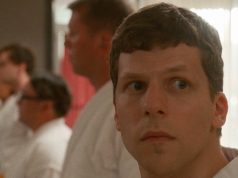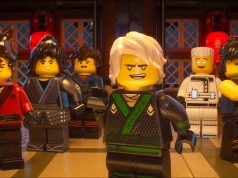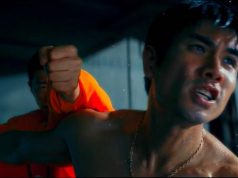As much as I enjoy Jackie Chan, I’m going to have to say it: The best thing about “Shanghai Noon” is his partner, Owen Wilson.
Wilson’s method of line-delivery, in which he sounds like he’s ad-libbing everything (and often is, from what I understand), has worked extremely well for him in quirky films like “Bottle Rocket.” His voice is both sardonic and naïve-sounding, sort of a polite whine, and he has a way of tossing off lines like they were afterthoughts that is endlessly amusing.
This style is downright hilarious in “Shanghai Noon,” in which he plays Roy O’Bannon, an 1881 Wild West train robber. He has all the accoutrements of a bad guy (including his own band of outlaws), but the sensibilities of a modern-day softie. (He stops to reflect on the musical sound of a rushing stream, for example.)
O’Bannon meets up with Jackie Chan’s character, Chon Wang, when Chon is sent from China to rescue the kidnapped Princess Pei Pei (Lucy Liu) from a Chinese labor camp (recall that it was the Chinese who slaved away at building the railroads in the American west). Together, they become a duo that, yeah, is your typical movie “odd couple,” where the humor is supposed to result because the two people are so different. What sets Chan and Wilson apart, though, is that they actually ARE funny together, and not just because of the contrasts involved. Wilson’s character is so hard to define — he’s an inept criminal and a sensitive guy, but not in the generic way those types are usually shown in movies — that the humor must, of necessity, come from his and Chan’s interaction, not their inherent racial or other differences.
And so we have Roy trying to teach Chon how to ride a horse and shoot a gun, and Chon showing Roy a Chinese drinking game. Roy learns loyalty and respect from Chon, and Chon learns Wild West law (i.e., anarchy) from Roy. (OK, so the lessons aren’t very deep. So what?)
Wilson manages his scenes without Chan just fine, carrying things along with his understated humor and charm. Chan does not fair so well. When he’s not fighting, he needs to be partnered with someone, and even though this is a buddy picture, it’s 45 minutes into it before the two buddies officially team up. This should happen sooner, because Wilson and Chan make a fantastic comedy duo.
Chan’s trademark martial arts skills are no less impressive here than they have been elsewhere (one just wishes he’d use them more during that slow first act). In fact, the man is amazing. What makes his fighting so much more entertaining than even the Master, Bruce Lee’s, is that Chan uses his environment. He knows we have short attention spans, and that we’ve seen enough hand-to-hand combat to where it no longer interests us. So when he’s fighting Indians in the woods, he uses tree branches. In a barroom brawl, he uses the antlers from a stuffed moose head. In a street fight, he uses a horseshoe tied to a rope. One suspects that, were he underwater, he’d use a scuba mask and a jellyfish to beat the crap out of his opponents. His acrobatic, gravity-defying moves are a wonder to behold, and this film gives him plenty of opportunity to show them.
“Shanghai Noon” takes too long to get going, and occasionally resorts to stupid movie tricks like Roy accidentally saying something disparaging of Chon and Chinese people in general, leading to a rift between the two buddies. But plot holes and small missteps aside, the movie is wonderfully, smartly funny, an entertaining treat to watch.
B+ (; )





